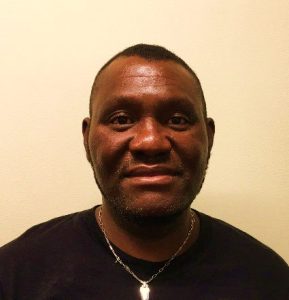What to Know About Sleep and Aging
As we age, it is not uncommon for our sleep habits to change; however, a decline in quality of sleep does not have to be accepted as a part of growing older. Here, the elder care providers at Avila Home Care discuss what senior citizens should know about sleep and proper sleeping practices.
Both Quality of Sleep and Time Asleep are Vital for Seniors
Regardless of age, every person should receive adequate quality and quantity of sleep for proper health and well-being. However, seniors particularly benefit from good sleep habits, as sleep helps to repair both the body and mind after exposure to injury, disease or stress. Proper sleep also provides seniors with the energy to exercise, engage in hobbies and stay alert to prevent falls and other accidents.
To reap the benefits of sleep, seniors require approximately seven to nine hours a night, and seniors should not be awake for more than 15% of their time in bed when trying to sleep. Furthermore, seniors should be able to fall asleep in 30 minutes or less, wake up no more than once per night and take less than 20 minutes to fall asleep again after being awakened during the night. Seniors who do not meet these criteria are likely not experiencing quality sleep, even if they are in bed for seven to nine hours a night.
Poor Sleep or Lack of Sleep May Be Related to Several Factors
A variety of factors may cause poor sleep or a lack of sleep as we age, including various medications, chronic pain, weakened bladder control, incontinence and chronic sleep disorders. If you are having trouble falling asleep or staying asleep, talk to your doctor or a sleep expert about the factors that may be impacting your sleep. Below is a brief description of a few sleep disorders that may become more common as we age:
Insomnia
Insomnia is the most common sleep problem in seniors aged 60 or older and is characterized by chronic difficulty falling and staying asleep. Those with insomnia often wake up several times throughout the night, wake up feeling tired or wake up early and cannot fall back asleep. Anxiety, stress, depression and grief are all common causes of insomnia, and treating these underlying issues may help to promote better sleep.
Sleep Apnea
Sleep apnea is caused when the sleeping individual temporarily stops breathing while asleep and is characterized by snoring and chronic sleepiness throughout the day. Sleep apnea is a serious condition—left untreated, sleep apnea may cause high blood pressure, memory loss or even a stroke. Continuous positive airway pressure (CPAP) devices are commonly prescribed to help manage sleep apnea.
Movement Disorders
Some movement disorders that may impact sleep include restless leg syndrome, periodic limb movement disorder and rapid eye movement (REM) sleep behavior disorder, all of which cause the individual to move around during sleep to the point that sleep quality is negatively impacted. Various medications, relaxation techniques and exercise may help to manage the symptoms of these disorders.
Alzheimer’s and Dementia
While Alzheimer’s and dementia are not sleep disorders, these conditions often have a major impact on sleep. Seniors with these conditions often sleep too much or too little and may sleepwalk or sleep-talk. While there is no cure for Alzheimer’s and dementia, caregivers can help to prevent injury by keeping the floor around the bed free of objects, placing a gate across stairways, keeping bedroom doors closed and locking up medications.
Several Strategies Can Be Used by Seniors to Improve Sleep
Help to improve the quality of sleep that you get each night by:
- only using the bedroom for sleeping,
- limit fluid intake one hour before bed to prevent waking to use the bathroom,
- abstaining from using electronic devices at least three hours before bed,
- going to sleep and waking up at the same time each day,
- engaging in a “before-bed” routine to unwind and prepare for sleep, and
- taking a warm bath or shower before bed to de-stress and relax before sleeping.
At Avila Home Care, our dedicated elder care professionals work with seniors to help them make healthy choices so that they may get the most out of their aging-in-place experience. To learn more about how an at-home caretaker can help you or an elderly loved one, contact Avila Home care today.
Reginald Nwaike is Avila’s Caregiver of the Month for November, 2021!
Congratulations to Reginald Nwaike– Avila’s Caregiver of the Month for November 2021! Reginald has been with Avila for 1 ½ years, and in his time with us he has proved himself to be an invaluable team member. He sets an extremely high standard, and is detail-oriented, conscientious, and compassionate. Reginald always holds his clients’ needs as the top priority. …
Read More...Senior-Targeted Scams to Watch Out For
No one likes to think about their elderly loved ones being targeted by scammers, but it is a reality that must be taken seriously. Here, the aging in place specialists at Avila Home Care provide information about some of the most prevalent senior-targeted scams that the elderly and their loved ones should watch out for.…
Read More...


